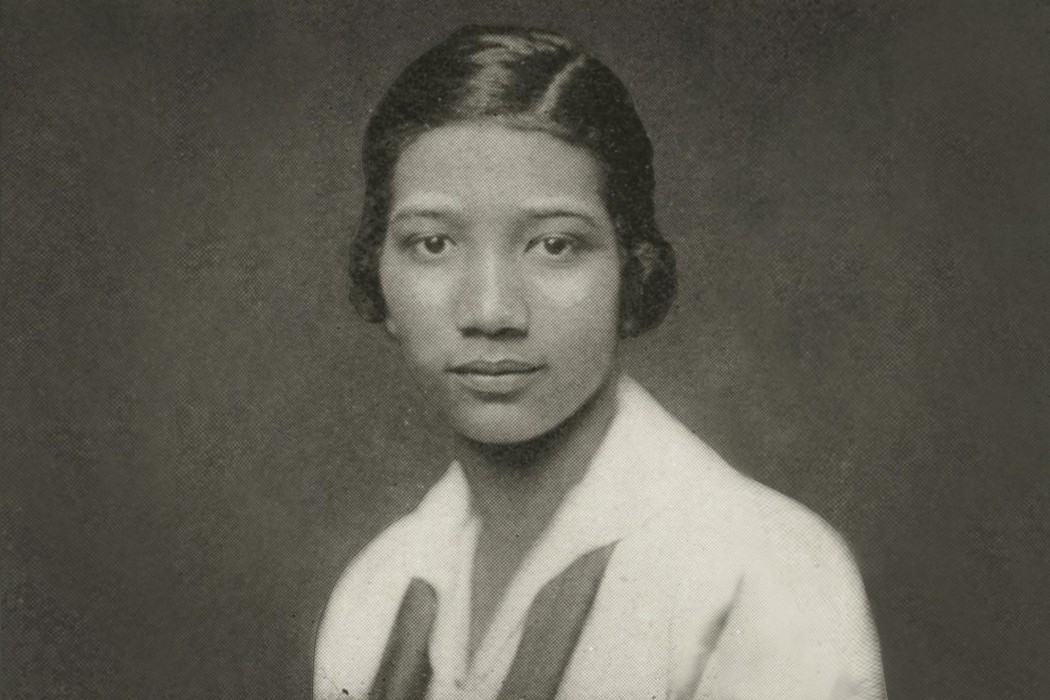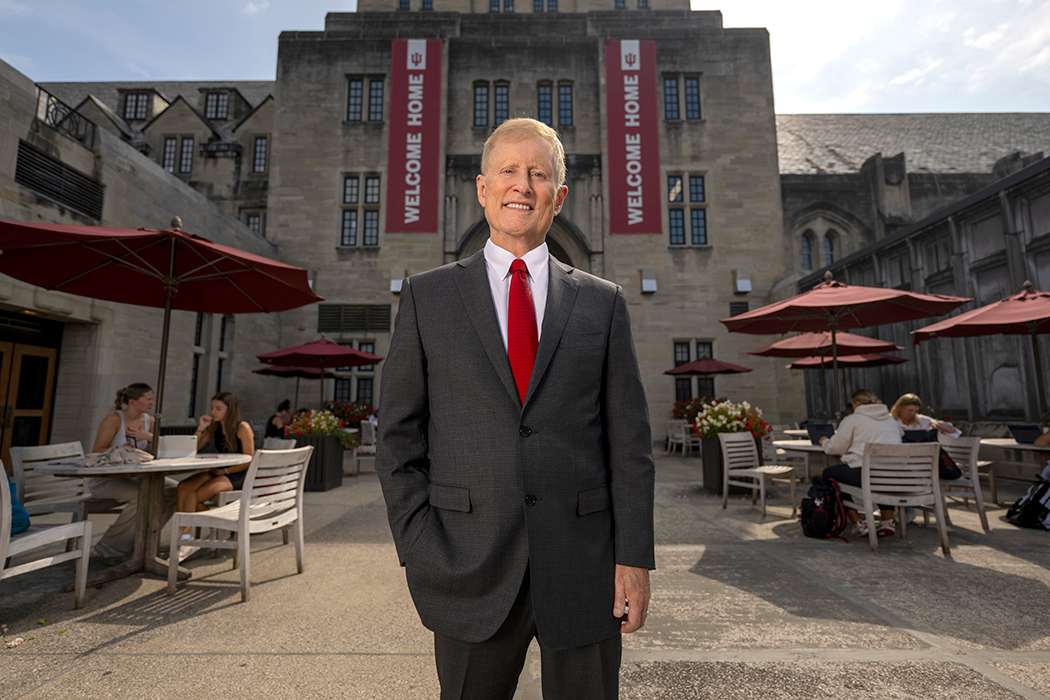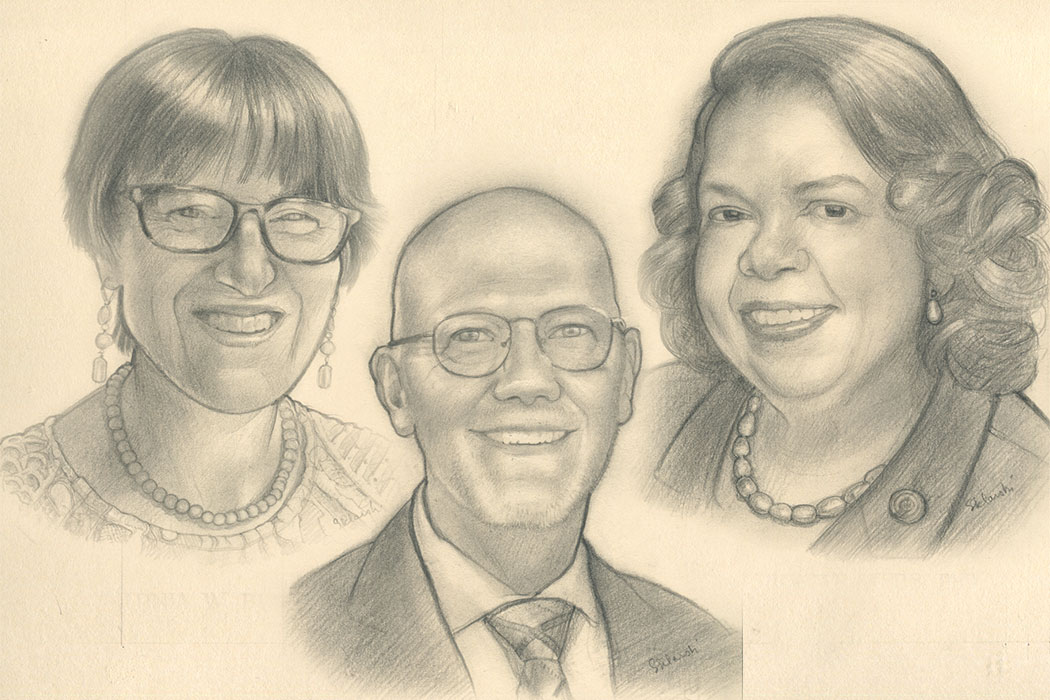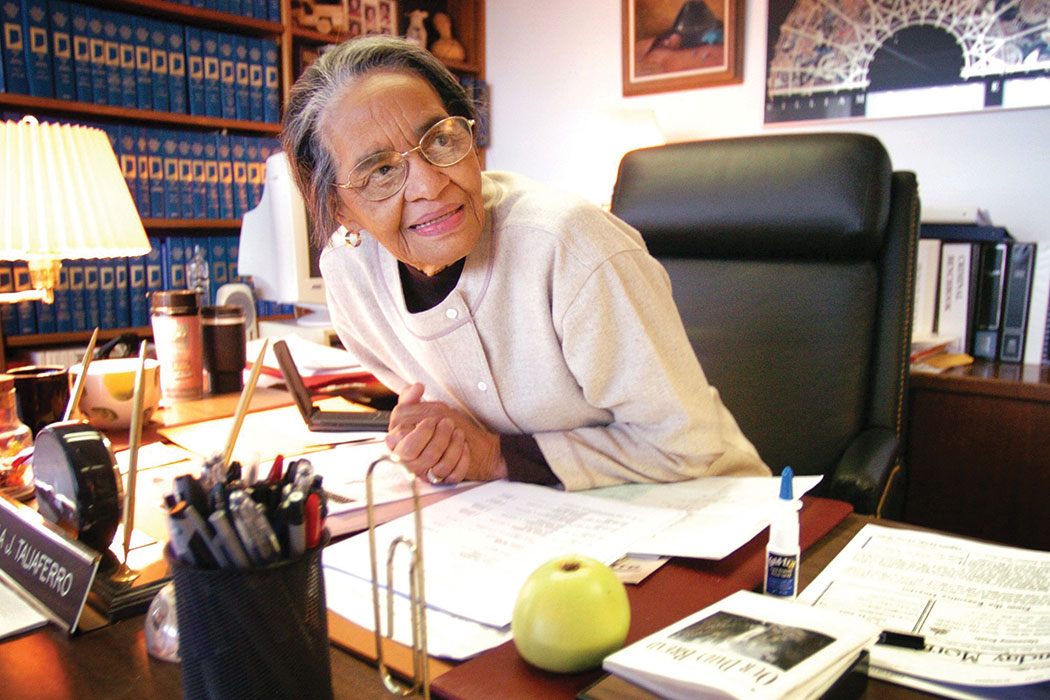A Phenomenal Woman

In the fall of 1915, a young Black woman from Rushville, Ind., arrived at Indiana University to begin her freshman year. She carried with her all her worldly possessions, her hopes and dreams, her intellect, and $1.25. This would be enough. It had to be, because back home the only career open to Black women was domestic servant or housewife (if your husband could afford to keep you at home). Frances Marshall, BA 1919, knew she wanted more.
In a time when it was rare for a Black man to go to college, Marshall was an oddity. In an interview with the Indiana Daily Student in 1982, she recalled that when she said she was going to college, “people thought I was crazy.” She had been the only Black student in her high school graduating class, but her high school principal recommended her to IU, writing that she was “worthy and has an ambition to do something.”
“Her mother told her, ‘We cannot afford to send you to college, but we will not stand in your way if you find a way,’” recalls Rosalind (Eagleson) Exum, MAT’52, Marshall’s daughter.
In those days, tuition was supplied wholly by the state. Indiana residents paid a $7.50 per semester contingency fee and a $1.50 per semester library fee. In July 1915, Marshall wrote the university about enrollment and a job. The letter she received in response said:
“Concerning the matter of self-support, I beg to say that a good many of our students do make a part or all of their expenses while attending the university. It is more difficult for a girl to do this than it is for a boy. There are more opportunities for work open to the boys.”
In 1919, Frances Marshall became the first Black woman to graduate from Indiana University. Because of this accomplishment, in 2002, the Neal-Marshall Black Culture Center was named in honor of her and Marcellus Neal, the first Black man to graduate from IU.
Campus Life
Indiana University did not allow African Americans to live on campus when Marshall was in school.
She first boarded with the Evans family, a Black family who often gave room and board to incoming Black students. Then, she went to work as a domestic in the home of limestone executive Hiram P. Radley, in exchange for room and board.

Exum says her mother went to the west side of town, where the Black people lived, for her social activities. She attended church there, went to movies, and was often escorted to parties given by Kappa Alpha Psi, a Black fraternity founded at IU in 1911.
When speaking with the Indiana Daily Student in 1982, Marshall said her years at IU were fairly uneventful. “I never worried about being a woman going to school,” she said. “I never worried about being Black going to school. I just went on with what I had to do. I got my lessons, did my work, and went home.”
As for race relations on campus, Marshall reported, “We lived in a world of our own. There was no intermingling between white and Black. You went your way, and they went theirs. They were pleasant, and that was all.”
She said there was “no animosity” but plenty of prejudice. Exum says her mother surprised professors by performing as well as her white peers.
A Historic Union
In 1919, the same year she received her degree, Marshall married Wilson Vashon Eagleson, a chemistry major. Her new husband was the son of Preston E. Eagleson, who in 1892 had become the first African American to participate in intercollegiate athletics at IU. Exum says her mother fit into the Eagleson family perfectly. And since the Marshall line had died out, she proudly took on the mantle of her husband’s family.
The couple met while he was living in the Army barracks on campus. While she waited for her husband to graduate, Frances Marshall Eagleson began her career. After a brief stint teaching in Cincinnati, she taught one year at Edward Waters College in Florida. In 1921, she began her long tenure at what is now North Carolina Central University, then a private high school for Black students called the National Training School.
After his graduation in 1922, Preston joined her there as the football coach and as a chemistry teacher. By this time, they had two young children, Wilson Vashon Jr. (called Vash), born in 1920, and Rosalind, born in 1922. Frances Marshall Eagleson did whatever was needed at this growing school, from making theater costumes to fundraising to co-signing loans for students who had potential but no money.
Meanwhile, her husband was working on a doctorate in chemistry at Cornell University. During this period, she also found time to attend graduate school and study educational administration at the University of Chicago and at Columbia University. The children stayed with her mother in Bloomington.
Tragedy Strikes
In 1933, a week before his degree was to be conferred, Wilson Eagleson was killed in an automobile accident.
After she had recovered sufficiently from her grief to go and collect her husband’s things at Cornell, she found his room had been broken into and his research and dissertation stolen. They were never recovered. She moved the children back to North Carolina and put them in boarding school. And she continued to work.

Vash Eagleson, a retired, decorated Tuskegee Airman with the Flying 99th out of Pensacola, Fla., spent one semester at IU Bloomington before the love of airplanes took over.
He proudly recalls that his mother was “a registrar, an English teacher, a dietitian, and a historian” at North Carolina Central. She retired in 1964, after 43 years of service.
“By the time she retired, she’d been there practically longer than anyone else,” Exum says.
So important was Frances Marshall Eagleson to the school that a dormitory was named for her on May 18, 1979. The program on that occasion cited her as “the third most influential person in the development of North Carolina Central University, the other two persons being the first two presidents.”
According to the same program, the football team—the Fighting Eagles—was named after her husband.
Extraordinary Employee
When Florida Memorial College in St. Augustine heard that she had retired from North Carolina Central, they called to see if she would come there as the registrar. In the fall of 1965, Frances Marshall Eagleson accepted Florida Memorial’s offer.
When she retired in 1968, Spelman College in Atlanta called her. Spelman needed a registrar, and everyone knew about her extraordinary memory and ability to organize. She stayed at Spelman until 1970. At one point she even served as the president of the National Association of Deans and College Registrars. But at the age of 72, she retired for the third time, finally ready to quit working.
She then moved into private quarters in her daughter’s home. By the time she died in 1987 at the age of 88, she had more than proved correct her high school principal’s prediction that she “has an ambition to do something.”
This article originally appeared in the 1999 January/February issue of the IU Alumni Magazine. It is now part of our Black History Month series, IU’s Black History Makers.
Tags from the story
Written By
Jennifer Bailey Woodard
Jennifer Bailey Woodard, PhD’03, was a freelance writer for the IU Alumni Magazine. She is now an associate professor in the School of Journalism at Middle Tennessee State University.



